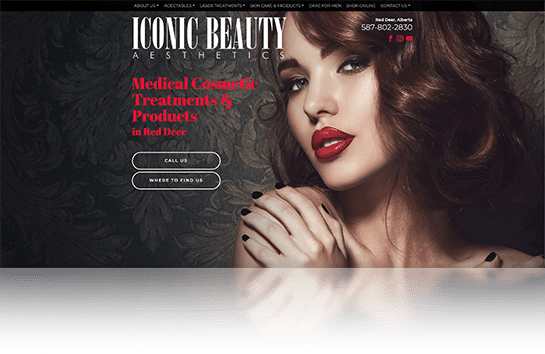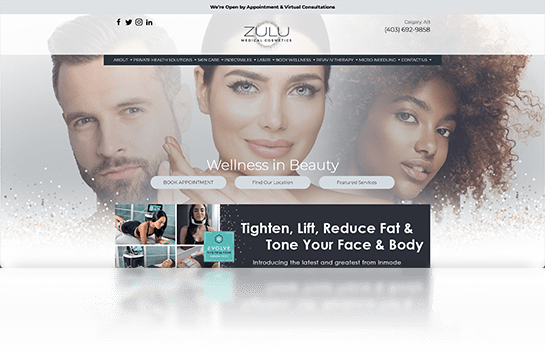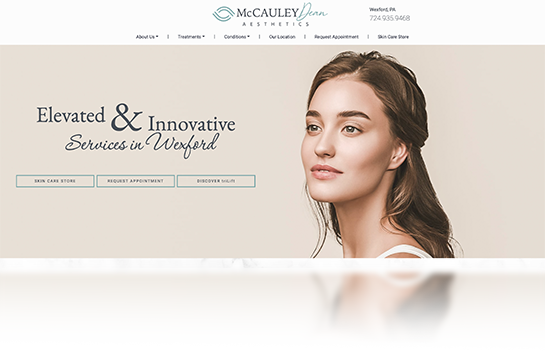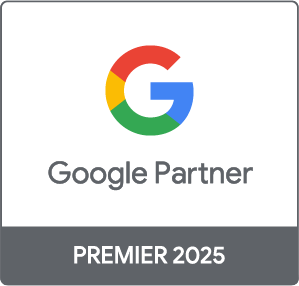It’s crucial to note that there’s no one-size-fits-all strategy when it comes to SEO, just like how you wouldn’t recommend a treatment without first seeing the patient and understanding their desired outcomes. Similarly, we require a thorough understanding of your practice before recommending specific keywords. That being said, there are some general best practices to keep in mind, which can help you understand why certain keywords are better and how to implement them on your website.
what are keywords
Starting with the basics, a keyword is what users enter into a search engine when they conduct a search. For instance, if you searched “best Botox clinic in Toronto”, the keyword would be “best Botox clinic in Toronto”. Keywords aren’t always just one word; in reality, most targeted keywords are multiple words, also known as long-tail keywords. Targeting long-tail keywords proves more beneficial for two major reasons: they are less competitive and provide a more accurate indication of user intent.
If a user searches for “Lip Fillers”, you’re unsure of their exact search intent. Do they want to know more about the product, its pricing, or benefits? On the other hand, if someone searches for “Lip fillers near me”, you can be relatively sure that they’re looking for a clinic in their area.
what to consider
When selecting targeted keywords, it is essential to gauge a range of factors. The keywords that you choose will vary depending on several factors. To determine the right keywords that you want to rank for and those you have a realistic chance of ranking for, consider the following aspects.
business age
First, consider the age of your practice. Typically, younger websites will have a harder time ranking for highly competitive keywords. Additionally, ranking for fewer keywords overall is typical, as it takes some time to build authority.
location
Secondly, consider your practice location. The bigger the city, the more challenging it is to rank locally. Consider specific neighborhoods or sections of the city to focus on before targeting broader, highly competitive keywords. For instance, “best Botox clinic in downtown San Francisco” is less competitive than “best Botox clinic in San Francisco”.
industry competition
Just like the size of your market, the competition will also influence your ranking for specific keywords in the medical aesthetic industry.
If most competitors invest in SEO and other digital marketing tactics, it becomes more challenging to rank for valuable keywords.
target audience
Consider your target audience before selecting keywords. Suppose your ideal patient is a woman looking to enhance their facial features or reduce wrinkles. In that case, keywords like “children’s skincare” are not essential.
practice objectives
Similarly, your practice objectives should align with your target keywords. If you want to become renowned for a specific service like non-surgical skin rejuvenation, then prioritize keywords that emphasize that service rather than general terms like “facial surgery.”
developing targeted keywords
Let’s get to the keywords that will allow your medical aesthetic website to rank better on search engines.
keyword strategy
Since the medical aesthetic industry operates in specific locations, most keywords should straddle both the service and location. In most cases, the keyword format is:
[target service] + [location]
For example, “liposuction Chicago,” where the service is “liposuction” and the location is “Chicago.”
high-value keywords
Common high-value keywords for medical aesthetic practices to target are:
[cosmetic surgeon] + [location]
[medspa] + [location]
[dermal fillers] + [location]
For instance, “Cosmetic surgeon Beverly Hills.”
*Niche aesthetics titles can replace “cosmetic surgeon.”
Of course, you have many other services you can offer your patients. Still, you must keep in mind that even if a patient is searching for a particular service like “chemical peel,” they may also look up “best aesthetician in Dallas” making this type of keyword essential to rank for.
specialty keywords
Specialty keywords vary depending on your practice or your target patient. A few examples of attractive specialty keywords are:
[PRP therapy] + [location]
[hair replacement] + [location]
[facial rejuvenation] + [location]
[photorejuvenation] + [location]
implementing keywords for your medical aesthetic practice
In order to improve the discoverability of your medical aesthetic practice, make sure that the relevant keywords are properly placed throughout your web content. Here are some essential locations to feature those keywords:
Homepage: Your homepage’s H1 (title) should include the keywords medical aesthetician, along with the name of your city or region. For example: “New You Medical Aesthetics: Experienced Providers of Medical Aesthetics in Vancouver”.
Service pages: Each service you provide should have its own dedicated page. This means that services like laser hair removal, Botox, dermal fillers, chemical peels, etc. must each be highlighted on their own separate page. If you bundle all your services together on a single page, your website will have less chance of ranking for keywords related to individual services.
Meta titles and descriptions: These are also known as page titles and descriptions which show up in Google’s search results. Even though they don’t appear on your website, they play an important role in helping your website rank. Ensure that the keywords relevant to what people are searching for are included in these titles and descriptions.
take note
While using keywords in the right places can help improve search rankings, avoid overusing them. Since the 90s, search engines have shifted attention from the number of keywords used, and it’s vital that you do the same. Instead, emphasize creating engaging and valuable content that users find helpful, and the rankings will follow.
If you are looking to optimize your website’s search rankings in the medical aesthetic industry, we can help. Contact us to book a demo and learn more about how we can enhance your website’s SEO to attract more visitors.









